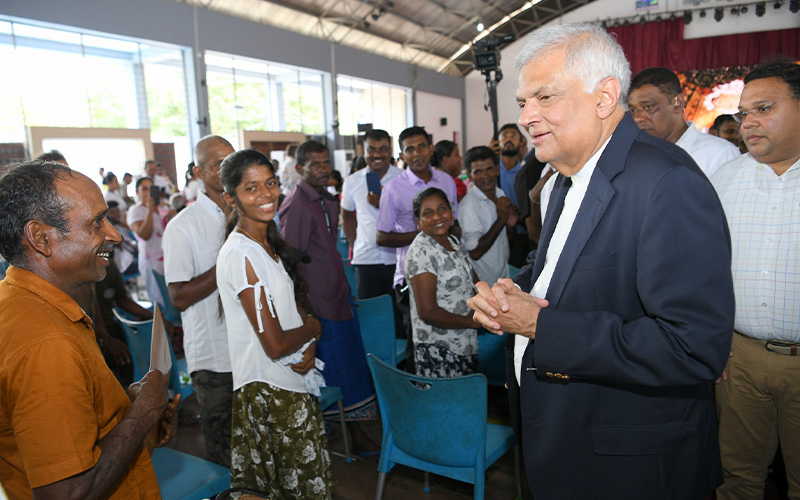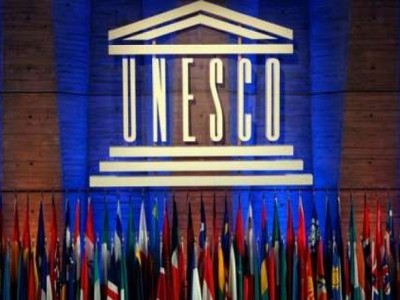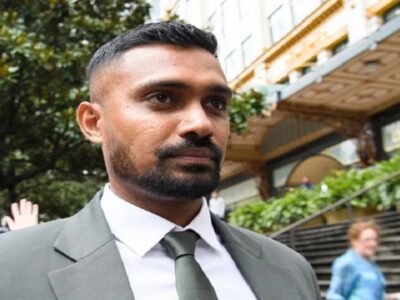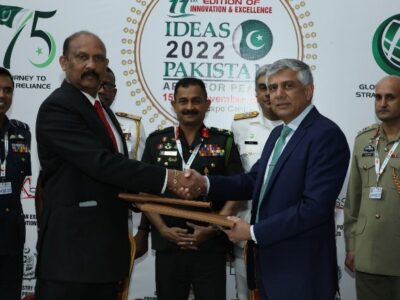(LANKAPUVATH | COLOMBO) – President Ranil Wickremesinghe hailed the government’s decision to grant free land rights to the people as a ground-breaking step, emphasizing that no other nation has undertaken such a massive initiative to date.
The President made these remarks while participating in the inaugural event for distributing freehold land deeds to Mahaweli settlers as part of the “Urumaya” program at Polonnaruwa Royal Central College this morning (04).
Emphasizing the principle that as one section of the population benefits from the country’s economy, another should not be left to suffer, the President underscored that the revolutionary initiative of granting free land titles was launched to uplift low-income individuals.
He urged the people to actively participate in building the economy in collaboration with the government’s agricultural modernization program, highlighting the potential for Polonnaruwa to become a key export district in the country.
The President highlighted his achievement in swiftly stabilizing the country’s economy with the help of one group, despite inheriting a government initially opposed by all. He extended an invitation to all sectors to collaborate in bolstering the nation’s economy over the next two to three years, aiming to secure a prosperous future for the youth.
The Sri Lanka Mahaweli Authority has outlined plans to prepare 204,002 freehold deeds, with on-going preparations at all regional levels. It is anticipated that 20,178 freehold deeds will be distributed to Mahaweli settlers by the end of May.
To commemorate its launch, 1340 freehold deeds were distributed to the residents of B, C, Madirigiriya, and Moragahakanda Mahaweli Zones in the Polonnaruwa District.
In a symbolic gesture representing the distribution of land deeds, the President personally handed out deeds to 30 individuals.
Addressing the gathering, President Ranil Wickremesinghe explained that those present, who entered the hall as licensees, would leave as landowners, as their land would become freehold that day. The president also emphasized the importance of land ownership in society and the significance of this change.
The President lamented the prevalent lack of legal land rights among many long-standing residents of the country, despite generational occupancy. He underscored the Urumaya program’s role in rectifying this, granting people freehold land deeds and securing their permanent rights, free from external interference or cancellation.
‘We’ve all faced numerous challenges over the past three years. Just like the country’s economy, our personal finances took a hit, and money became scarce. It was a tough time for everyone. However, we’re gradually overcoming these economic hurdles. We need to persist with this progress for another two or three years.
The government successfully raised the salaries of government employees by LKR 10,000. Similar salary increases were implemented in various public sector institutions. Furthermore, we’ve also ordered to increase wages in plantation sectors.
During past economic hardships, the impoverished population of the country faced significant challenges. In response, we launched the ‘Aswasuma’ program, with support from the World Bank. Through this initiative, we tripled the ‘Aswasuma’ allowance and expanded benefits to reach more people, increasing beneficiaries from 1.8 million to 2.4 million.
Additionally, we arranged for low-income individuals to receive 10 kilograms of rice each for two months during the Sinhala New Year. Amidst these efforts, as the country’s economy makes a steady recovery, it’s crucial to ensure that every segment of society reaps the benefits. Thus, we’ve undertaken the task of granting free land rights to all individuals currently residing on government-owned lands.
It’s worth noting that the government’s decision to grant land rights to the people marks a revolutionary move. Unlike in other countries, such comprehensive land rights initiatives are rare. Therefore, this represents a significant revolution. These land rights extend beyond just agriculture; they encompass housing as well. Even those residing in apartments now have rights to their homes. Consequently, this program can be seen as revolutionary on a global scale, a liberation for our citizens.
We discussed expediting the issuance of these land deeds in the Cabinet this week. The Prime Minister has taken charge of these efforts. I urge the chairpersons of District Development Committees to oversee this matter and provide updates. We aim to complete this program within the next two months. The Land Commissioner’s Offices, the Ministry of Mahaweli, the Department of Survey, along with District Secretaries and Divisional Secretaries, must collaborate to drive this program forward.
Furthermore, upon obtaining these lands, it is imperative that you participate in the government’s agricultural modernization program. It is the responsibility of each of us to contribute to advancing the country’s agriculture, leading it towards a competitive agricultural export economy through modernization efforts.
The Agriculture Modernization Program stands as a flagship initiative of the government, and the upcoming visit of the Japanese Foreign Minister aims to explore potential support. Additionally, representatives from the World Bank will visit next June to assess the program’s progress and plan for the next three to four years. Therefore, it is essential to formalize these activities as we need to present plans for the program’s continuation. Through these efforts, we are committed to advancing our nation.
I urge everyone to actively participate in this program. The Polonnaruwa district holds immense potential to emerge as a significant export district in Sri Lanka. We’ve already initiated steps towards that goal. Some may question what has been accomplished in the past 76 years. However, it’s crucial to recognize the development efforts undertaken, such as the establishment of waterways, provision of electricity, and settlement of people to achieve self-sufficiency in rice production.
Yet, I have taken on the responsibility to provide the development that these provinces have lacked. I extend an invitation to all to join in this endeavour.
I firmly believe in the unity of our government. Today, we have an exceptional administration. Despite facing initial resistance, we embraced a government that was initially rejected by many. However, we have now initiated collaborative efforts to strengthen the country’s economy together. Therefore, I appeal to all of us to work collectively towards building a robust economy over the next two or three years, ensuring a bright future for our youth.
Prime Minister Dinesh Gunawardena praised the Urumaya Program, which is based on President Ranil Wickremesinghe’s vision, as a transformative initiative that promises a significant revolution in the country.
Acknowledging the challenging circumstances inherited, Prime Minister Gunawardena commended President Wickremesinghe for his leadership in steering the nation from chaos to stability, both politically and economically. Despite facing criticism, President Wickremesinghe remained resolute, advancing the country’s progress without yielding to detractors.
In the past two years, farmers encountered numerous challenges, including a shortage of fertilizer. However, the current president implemented fertilizer subsidies, demonstrating a steadfast belief in the agricultural sector. The Prime Minister emphasized the pivotal role of farmers in ensuring the country’s food security, particularly during times of crisis.
Hence, measures were initiated to distribute freehold deeds to farmers in Polonnaruwa under the ‘Urumaya’ program. The progress achieved in the agricultural sector has bolstered international confidence. Therefore, we seek your continued support in nation-building, ensuring the trust bestowed upon us is upheld.
Minister of Wildlife and Forest Resources Conservation and Irrigation, Ms. Pavitradevi Vanniarachchi, emphasized that President Ranil Wickremesinghe is instituting a comprehensive system that addresses the fundamental needs of households, including land, food, and water. With the provision of freehold land deeds, families can effortlessly establish themselves, creating economic empowerment. When 2.0 million of freehold land deeds are granted, it generates significant economic strength. President Ranil Wickremesinghe’s ‘Aswasuma’ program empowers the people of this country to stand independently. The President has emphasized through the President’s Secretary that the agricultural modernization program should be the government’s top priority.
In the past, we encountered numerous challenges due to the inability to grant land rights to the people. However, today, not only have these rights been bestowed, but the government’s primary focus lies in modernizing the agriculture industry. When compared to other nations globally, we lag behind, prompting our President to offer guidance and assistance, facilitated by the Asian Development Bank, to foster economic growth.
Reflecting back about two years ago, our country faced a severe economic downturn, leaving the people bewildered and uncertain about the nation’s future. However, under the leadership of President Ranil Wickremesinghe, we witness the nation’s remarkable advancement, driven by his expertise, experience and tangible results. It is incumbent upon us to express our gratitude to him for steering the country out of that tumultuous period.
Religious leaders, led by Maha Sangha, and government officials, including State Minister Lohan Ratwatte and State Minister Siripala Gamlath, along with Member of Parliament P. Harrison, former Deputy Minister Chandrasiri Suriyarachchi, former Member of Parliament Nalaka Kolonne, North Central Province Governor Mahipala Herath, Secretary to the President Saman Ekanayake, Secretary of the Ministry of Irrigation Saman Darshana Padikorala, Director General of Sri Lanka Mahaweli Authority Mahendra Abeywardena, and security force representatives, as well as other delegates and attendees, were present at the event.




